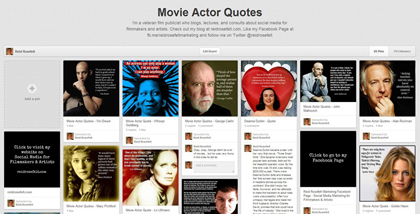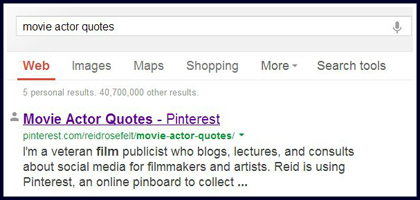By Reid Rosefelt
As a busy filmmaker or visual artist, you may feel you’re already spending too much time on Facebook and Twitter, and the last thing you need is to start soaking up your time with another social media platform. I understand that completely, but I’m going to show you how Pinterest can help you even if you don’t really use it.
In case you haven’t heard, Pinterest is a new and increasingly popular social media website that allows you to “pin” images and videos to virtual pinboards that you create, organized around themes. You can either upload your own creations, bring them in from other websites, or “repin” them from other Pinterest users.
A recent survey found that Pinterest is only one percent behind Twitter, up from twelve percent in August 2012 to fifteen percent in February. It skews very heavily female at this point, but that may shift as more people use it.




